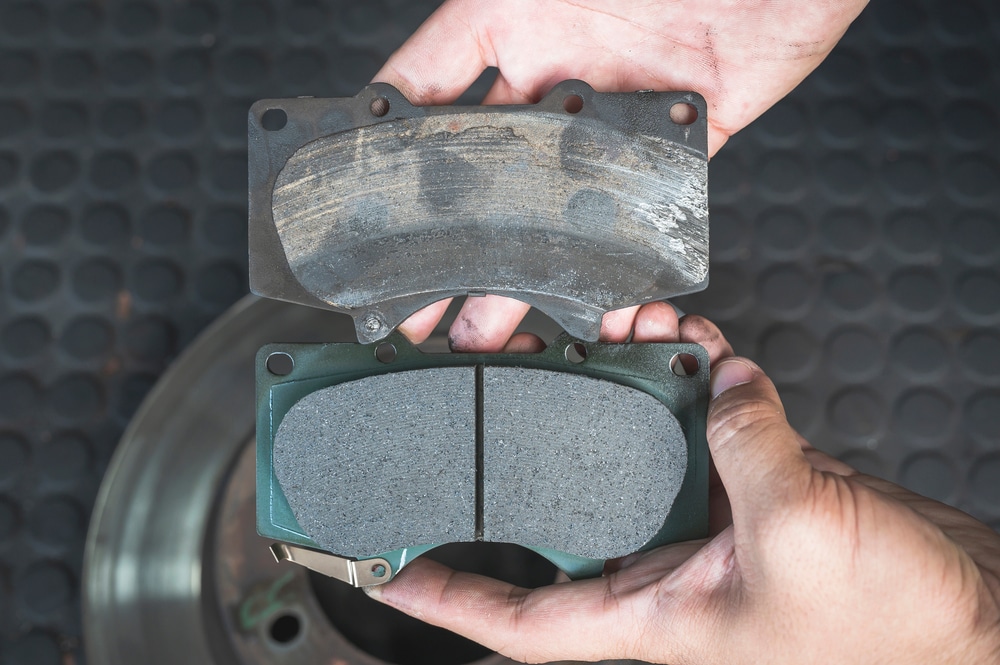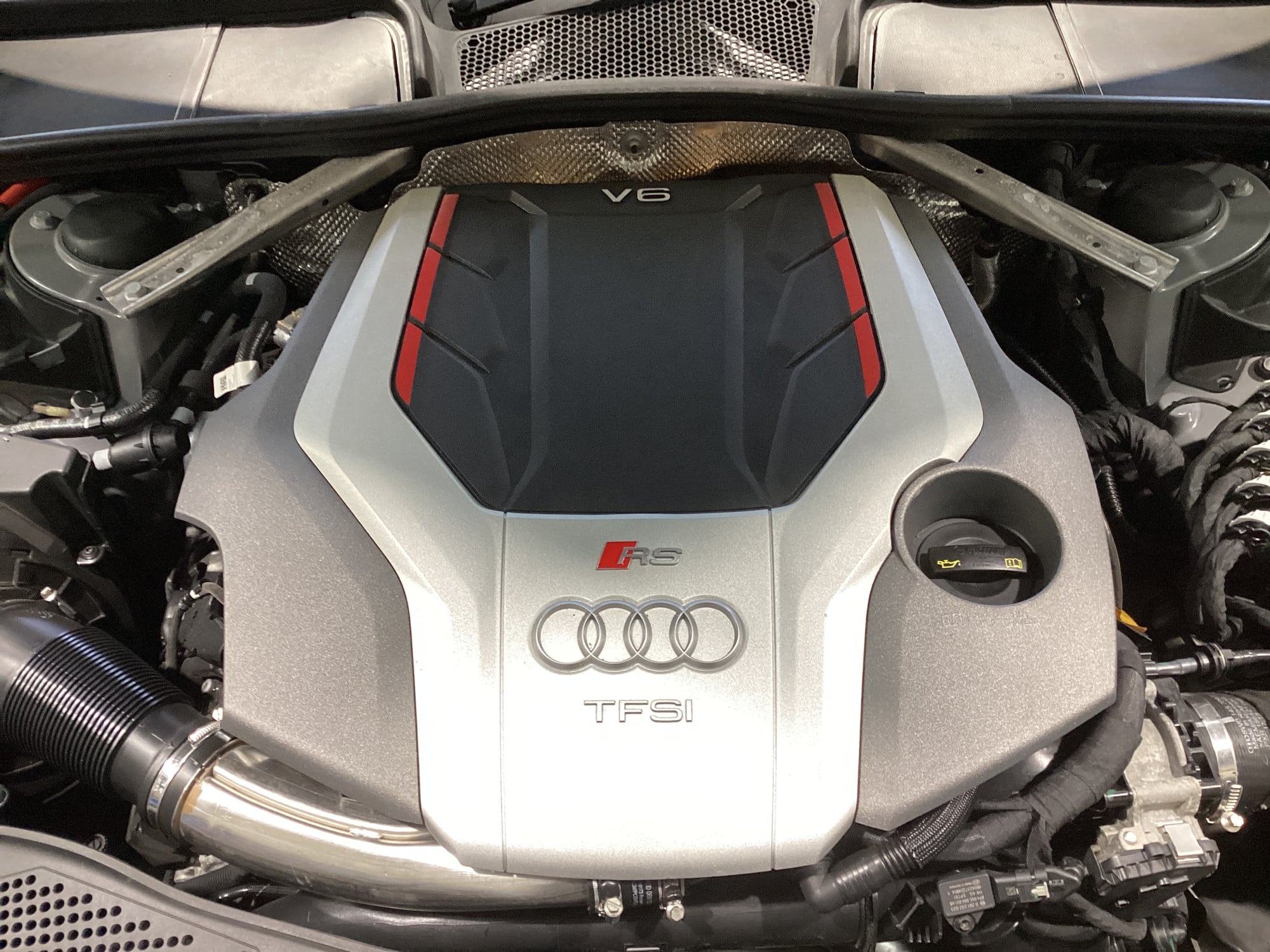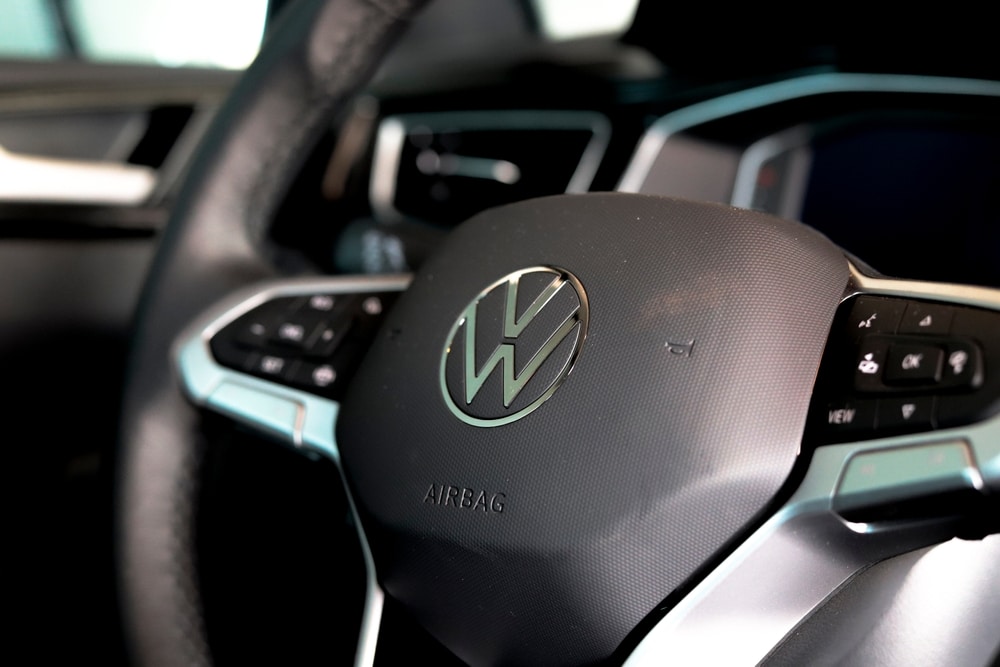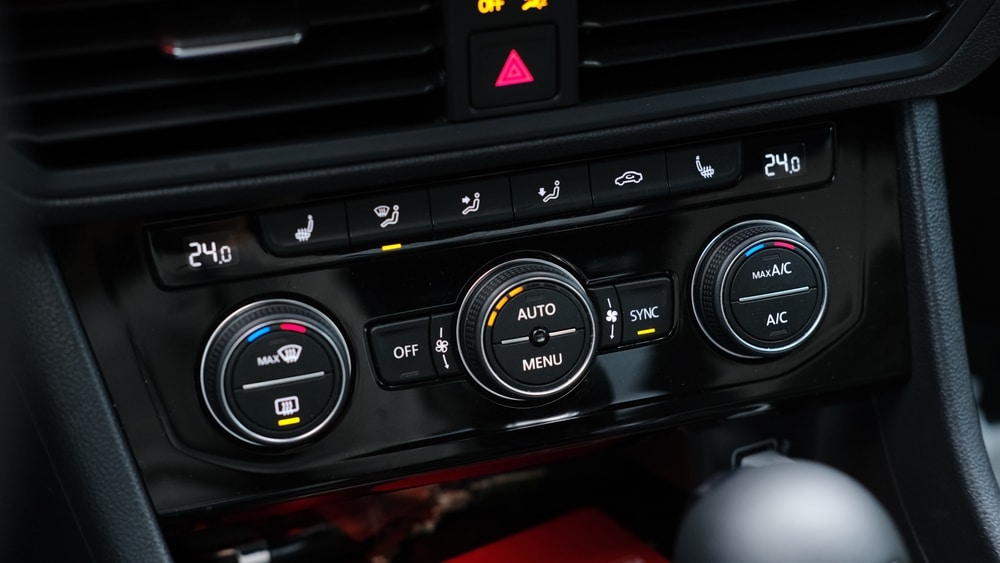Brake Pads
Brake pads are one of the most frequently replaced components on any vehicle, yet they’re not something drivers tend to think about unless there’s a problem. But these simple, easily overlooked parts are central to your car’s ability to stop safely and predictably in all conditions. Whether you’re driving through Wigan, heading into Bolton, or just doing the daily run around Standish, your brake pads are working hard every time you slow down — and when they begin to wear, it affects far more than just braking performance.
In this blog, we’ll explore exactly how brake pads help keep you safe, what causes them to wear faster, and how to spot the signs that it’s time for a replacement. We’ll also explain what happens if you delay a brake pad change for too long — and why acting early can save you time, money, and unnecessary risk.
How Brake Pads Help You Stop Safely
Every time you press your brake pedal, your vehicle’s braking system springs into action — and the brake pads are right at the centre of it. Their job is to press against the brake discs with just the right amount of friction to bring your vehicle to a smooth, controlled stop.
That process begins with hydraulic pressure. As you apply the brake pedal, hydraulic pressure forces the pads onto the rotating brake disc. The resulting friction is what slows the wheel down. If the brake pads weren’t there to absorb and apply that force, the braking system would struggle to function, and stopping distances would increase dramatically.
It’s a simple system in theory, but it only works if the brake pads are in good condition and suited to your vehicle’s specification. Worn or poor-quality pads don’t create enough friction, which can lead to longer stopping times, unpredictable braking behaviour, and even damage to other parts of the system.
This is why keeping on top of brake pad replacement is one of the most important parts of staying safe on the road, whether you’re navigating heavy traffic in Wigan or just pulling up on a rainy day in Standish.
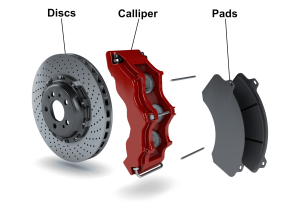
Why the Right Brake Pads Make All the Difference
While all brake pads are designed to help you stop, they’re not all built the same, and that’s no accident. Different vehicles and braking systems call for pads with specific characteristics, and using the wrong ones can lead to more harm than good.
At Standish Service Station, we only fit brake pads that meet the exact specification for your vehicle. That means no guesswork, no cutting corners, and no risking your safety with parts that weren’t designed for your braking system.
With that in mind, it’s worth being aware of the types of pads on the market — they’re not all designed alike. Most are grouped into three main types:
- Organic (NAO) brake pads are made from softer materials like fibres and resins. They tend to be quieter during everyday driving, but they wear out quicker and aren’t ideal for heavy braking or high temperatures.
- Semi-metallic pads contain a higher percentage of metal, which gives them more stopping power and better heat resistance. The trade-off is that they can wear down your brake discs faster and usually create more dust and noise.
- Ceramic brake pads use a blend of ceramics and copper fibres. These are known for staying quieter, producing less dust, and coping well with heat — though they often come at a higher price point.
It’s not about which pad is best overall, but which pad is best for your specific car. Your braking system is designed to work as a unit, and swapping in the wrong material can upset the balance, increase wear, and reduce braking efficiency.
That’s why every brake pad change we carry out in our Standish workshop is done to the manufacturer’s original specification. It’s the only way to protect performance, safety, and long-term reliability — whether you’re navigating the roads through Wigan or making regular trips into Bolton.
What Can Cause Brake Pads to Wear Out Faster?
Brake pads naturally wear down over time — they’re designed to. But some factors can cause them to degrade much sooner than expected. Knowing what these are can help you spot potential problems before they affect your safety.
Here are some of the most common causes of premature brake pad wear:
- Heavy braking and high-speed driving: Regularly braking hard from high speeds increases heat and friction, which accelerates brake pad wear and can reduce their lifespan considerably.
- Driving in stop-start traffic: Constant braking in congested areas like Wigan town centre or on the school run around Standish can wear pads out faster than steady driving on open roads.
- Worn brake discs: If your brake discs are corroded, warped, or excessively worn, they won’t allow the pads to make smooth, even contact, causing the pad surface to wear unevenly or more rapidly.
- Poor-quality replacement pads: Cheaper brake pads often contain lower-grade materials, which don’t handle heat well and tend to wear out much quicker than higher-quality alternatives.
- Dragging brakes or stuck callipers: A sticking calliper can cause the brake pads to press against the brake discs continuously, even when you’re not braking. This leads to rapid wear and increased risk of overheating.
If you’ve noticed any changes in braking performance or it’s been a while since your last brake pad replacement, it may be worth getting them checked, especially if you regularly drive around Bolton or commute across town.
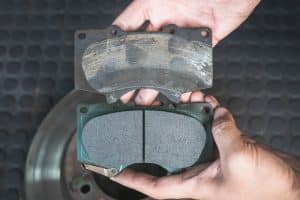
The Early Signs Your Brake Pads Are Wearing Thin
Brake pads usually give you some indication they’re reaching the end of their life — if you know what to look or listen for. Catching these signs early not only helps protect your vehicle, but also prevents more serious problems from developing in the braking system.
Here are the most common warning signs to keep an ear and eye out for:
- Squealing or screeching when braking
Many brake pads are fitted with a small metal wear indicator. As the pad material thins out, this tab starts to make a high-pitched noise to alert you. If you hear that persistent squealing, especially at low speeds, it’s a clear signal that your pads need attention. - Grinding noises
If you hear a harsh grinding sound when pressing the brake pedal, it could mean the pad material is completely gone and the metal backing plate is now in contact with the disc. At this stage, braking efficiency is severely reduced, and the risk of disc damage is high. - Brake warning light illuminated
On many modern vehicles, electronic sensors monitor brake pad wear. If the warning light appears on your dashboard, it’s not just a casual reminder — it means the pads are nearly finished and should be inspected straight away.
Braking issues won’t fix themselves, and ignoring the early signs could turn a simple brake pad replacement into a far more expensive repair. If you’ve noticed any of the above symptoms while driving through Wigan, Bolton, or even just locally in Standish, now’s the time to have your brakes checked.
Why Delaying a Brake Pad Change Can Be Costly
It might start with a small sound or a dashboard light, but putting off a brake pad change can quickly lead to bigger problems, both for your vehicle and your wallet.
Brake pads are meant to wear down gradually, but once they get close to the minimum thickness, that wear can speed up rapidly. If you keep driving past that point, the pad material can vanish altogether. What’s left is the metal backing plate — and when that makes contact with the brake disc, the damage begins.
Instead of just needing a brake pad replacement, you’re now looking at fitting new brake pads and discs. And that’s a repair that costs significantly more.
But the risk doesn’t stop at extra parts. Severely worn pads affect stopping distances, can cause the brakes to overheat, and place extra strain on components like the callipers and brake fluid. Over time, this can impact how your car handles during sudden stops, especially on busy roads around Bolton or wet surfaces near Wigan.
At Standish Service Station, we’ve seen the difference between catching brake wear early and waiting too long. Acting quickly means a simple, affordable repair. Leaving it? That could mean more damage, more downtime, and more money.
Book Your Brake Pad Check with Standish Service Station
Brake pads may be small, but they’re essential to your safety. That’s why regular checks and timely replacements matter — and why it pays to trust a team that knows exactly what your braking system needs.
At Standish Service Station, we carry out every brake pad replacement using parts that match the original manufacturer’s specifications. Whether you’re in Wigan, Bolton, or just around the corner in Standish, our skilled technicians will give your vehicle the care and attention it deserves.
We back every job with a full 12-month parts and labour guarantee, and we offer a free courtesy car to keep you moving while we work.
We have a {{average-rating}} star Google rating from {{review-count}} satisfied customers.
If your brakes are making unusual noises, or it’s been a while since your last check, give us a call today on 01257 422899. One quick inspection could save you a costly repair — and help make sure your vehicle stops safely, every time.
